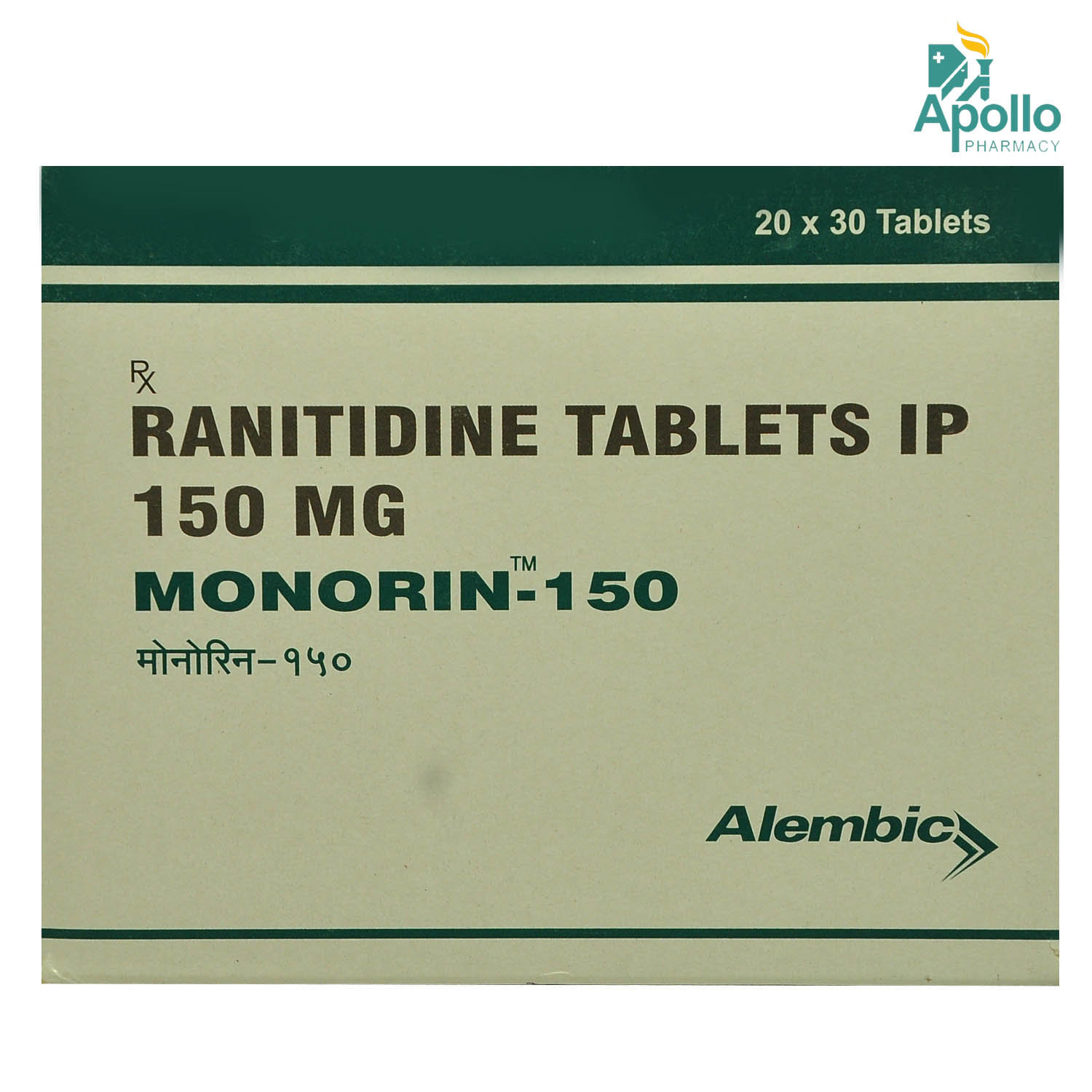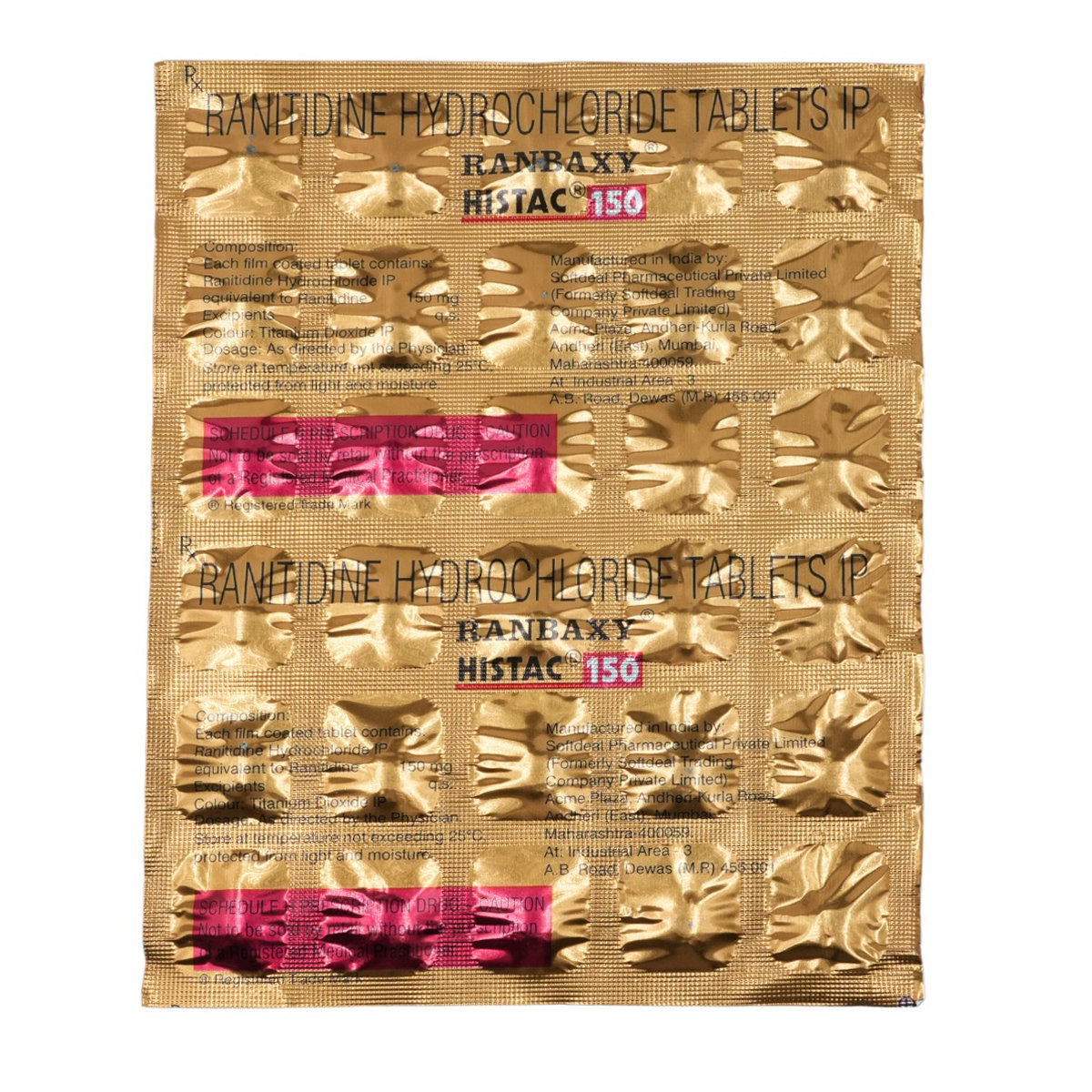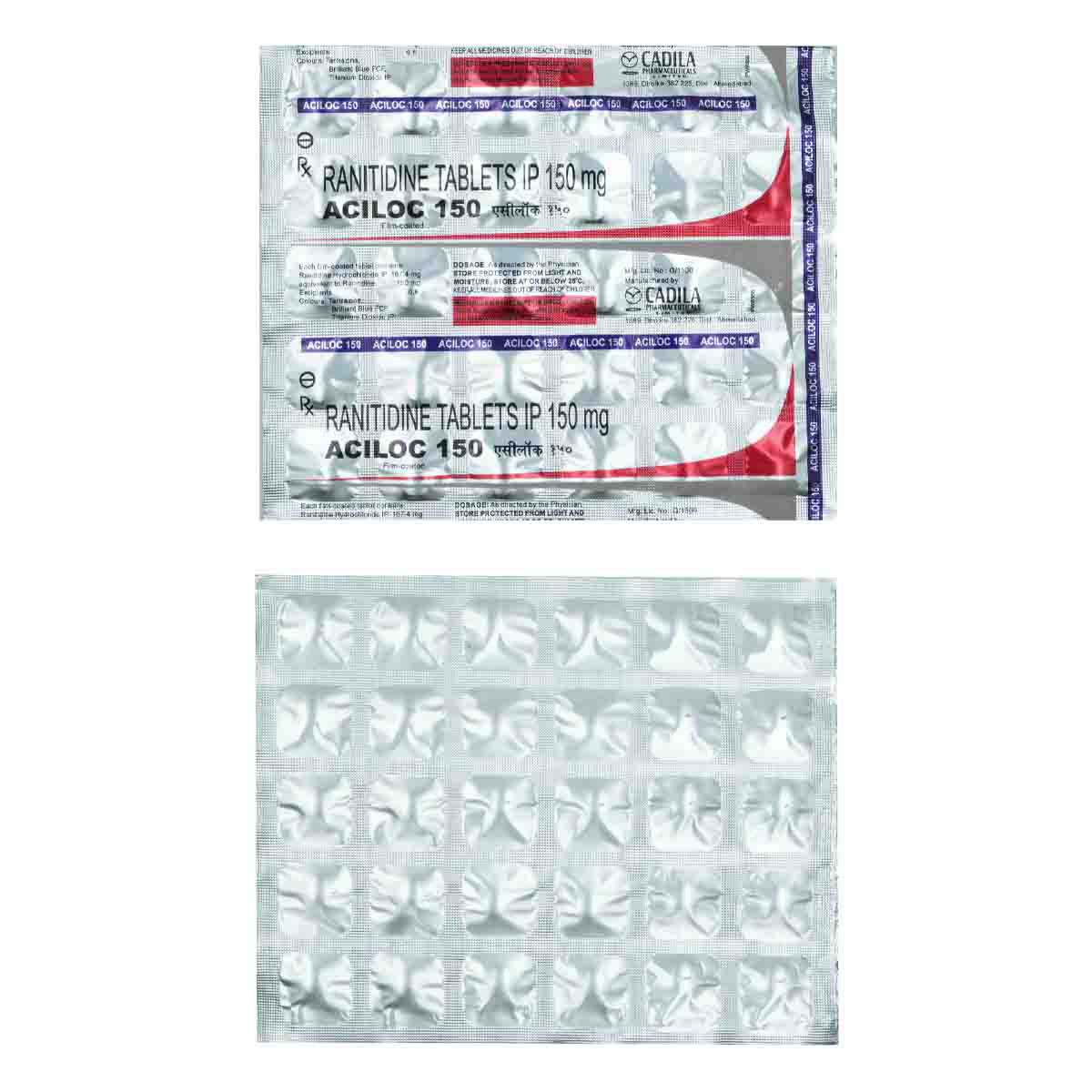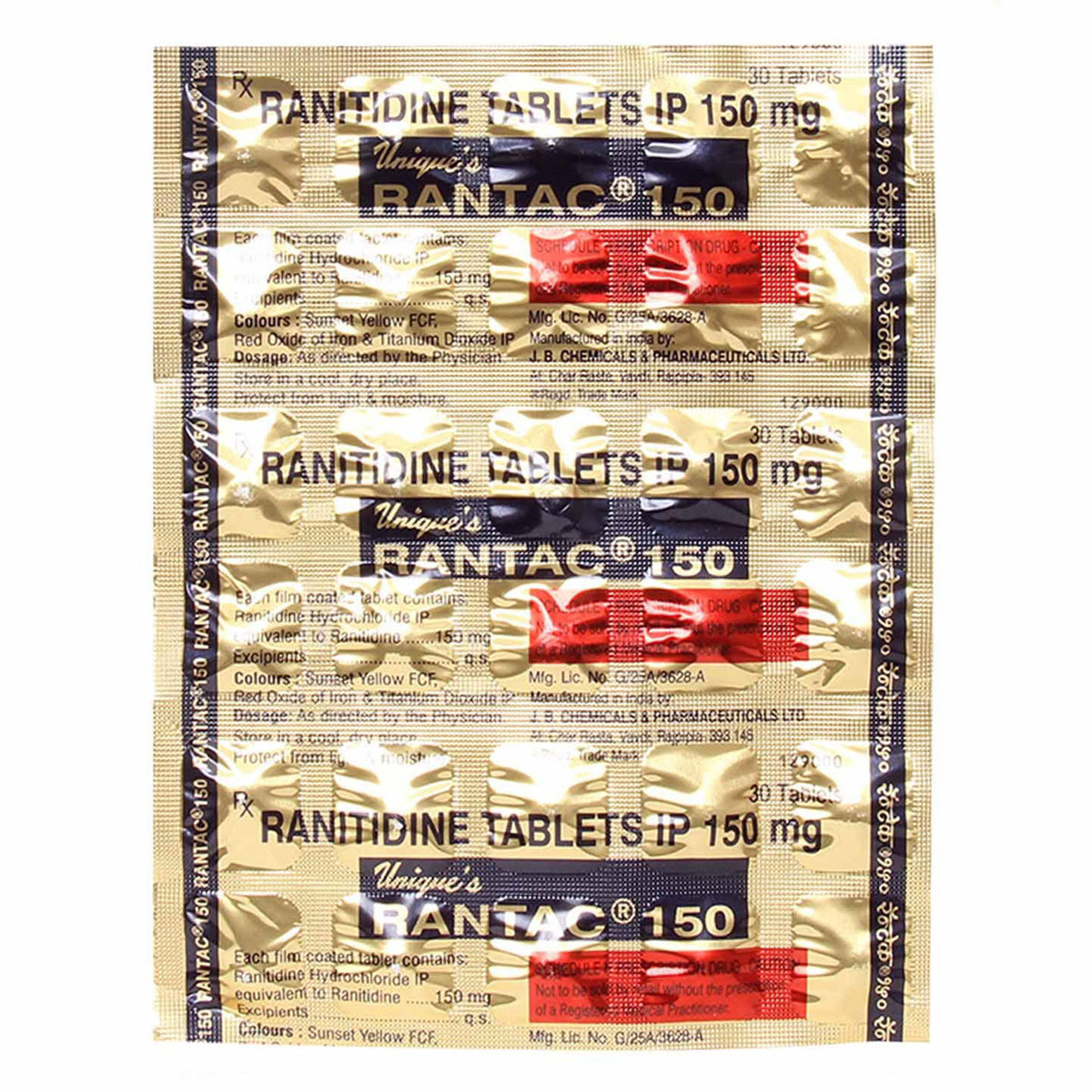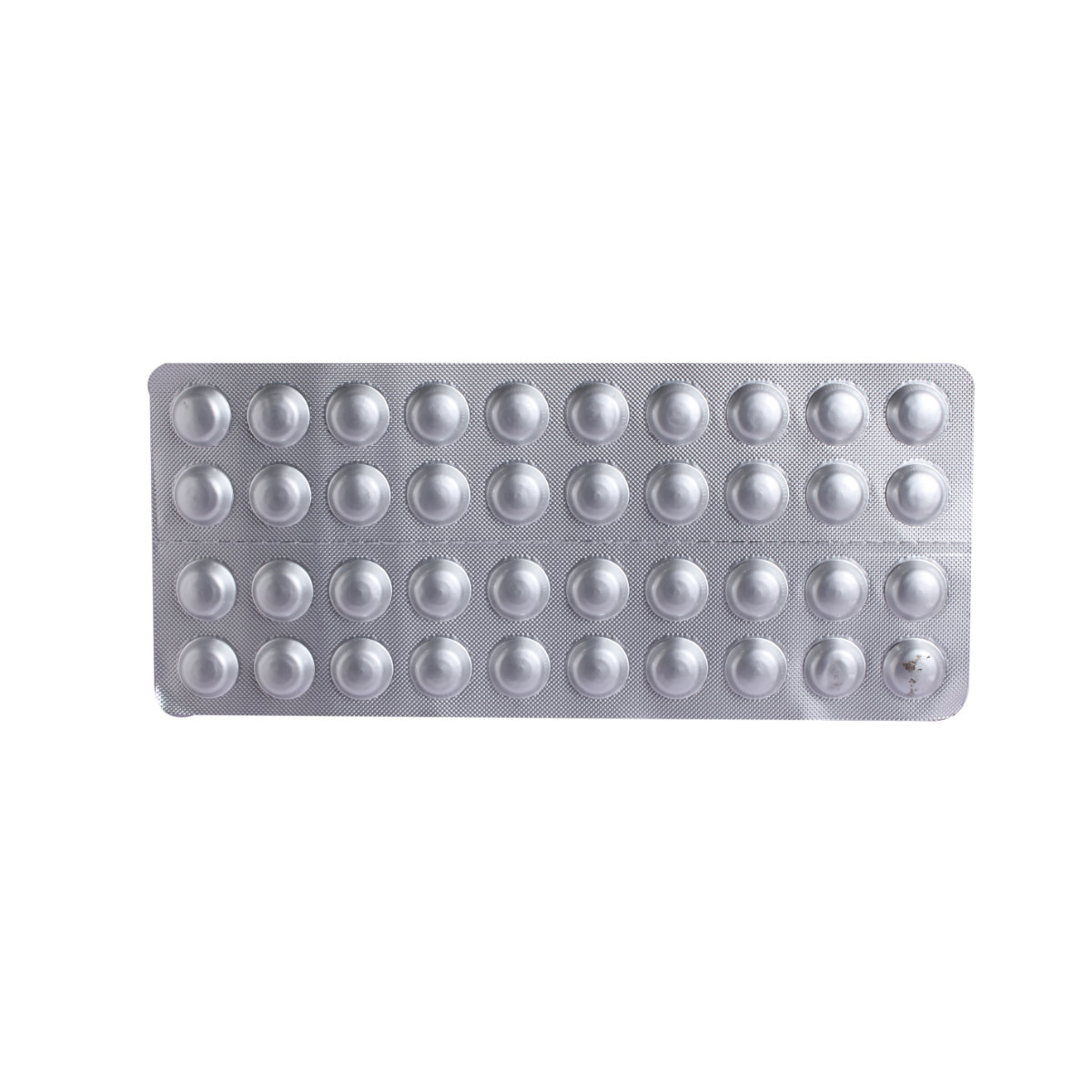R-Loc 150 Tablet 30's
R-Loc 150 Tablet belongs to the class of gastrointestinal agents. It is used to treat indigestion, heartburn and acid reflux. R-Loc 150 Tablet is also used for gastro-oesophageal reflux disease (GORD) when you get acid reflux. R-Loc 150 Tablet is also used to prevent and treat stomach ulcers. Often R-Loc 150 Tablet is taken for a rare condition caused by a pancreatic or intestine tumour called Zollinger-Ellison Syndrome.





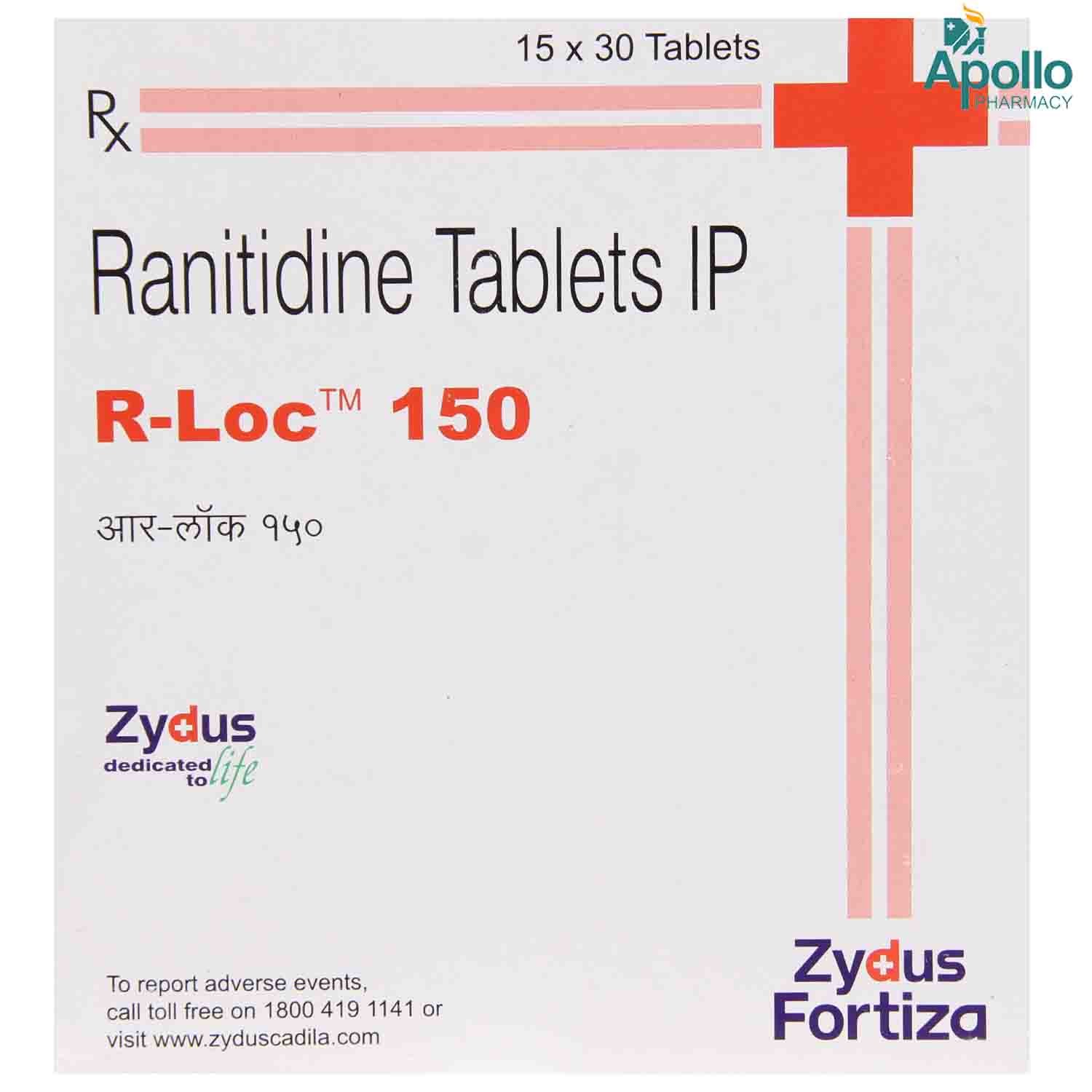
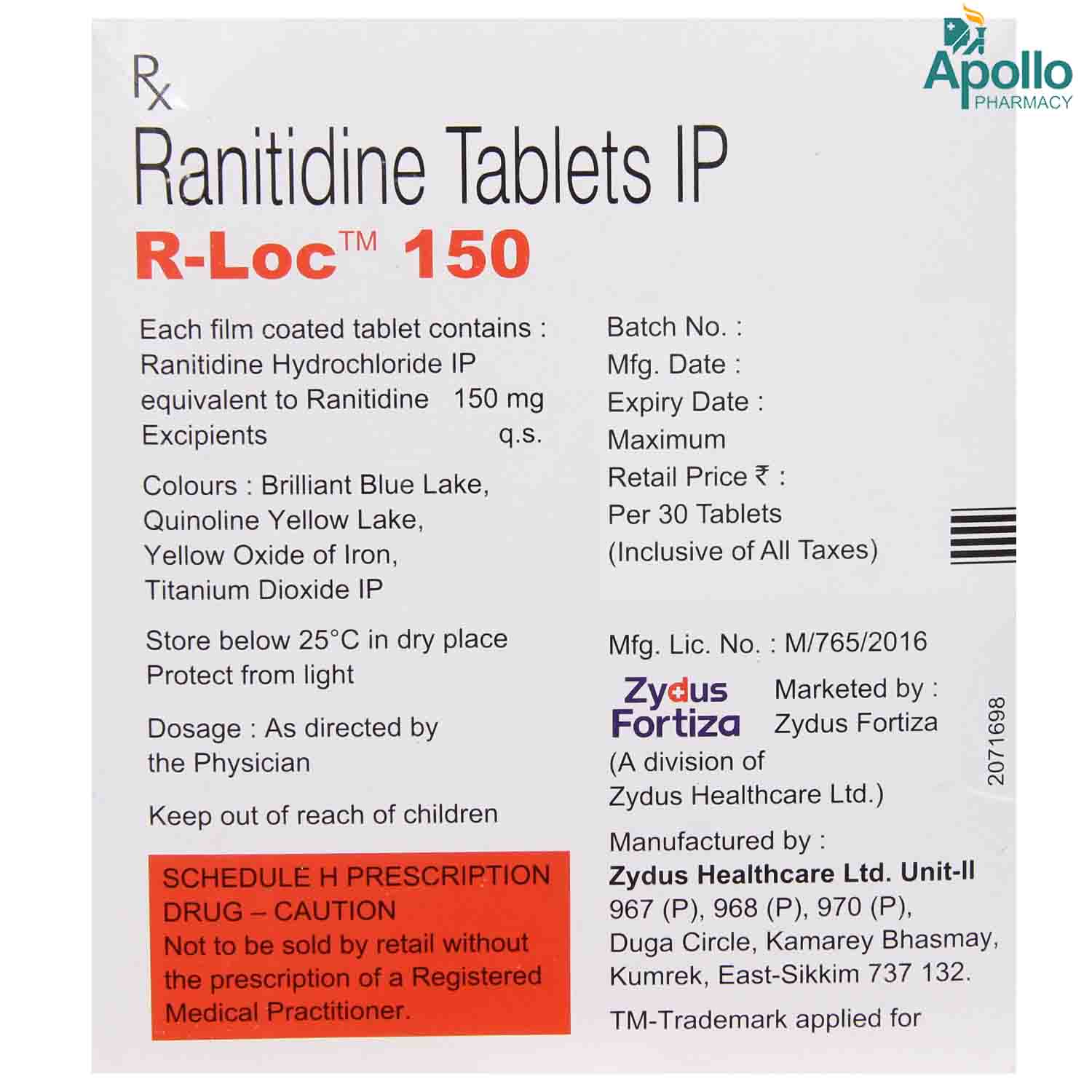
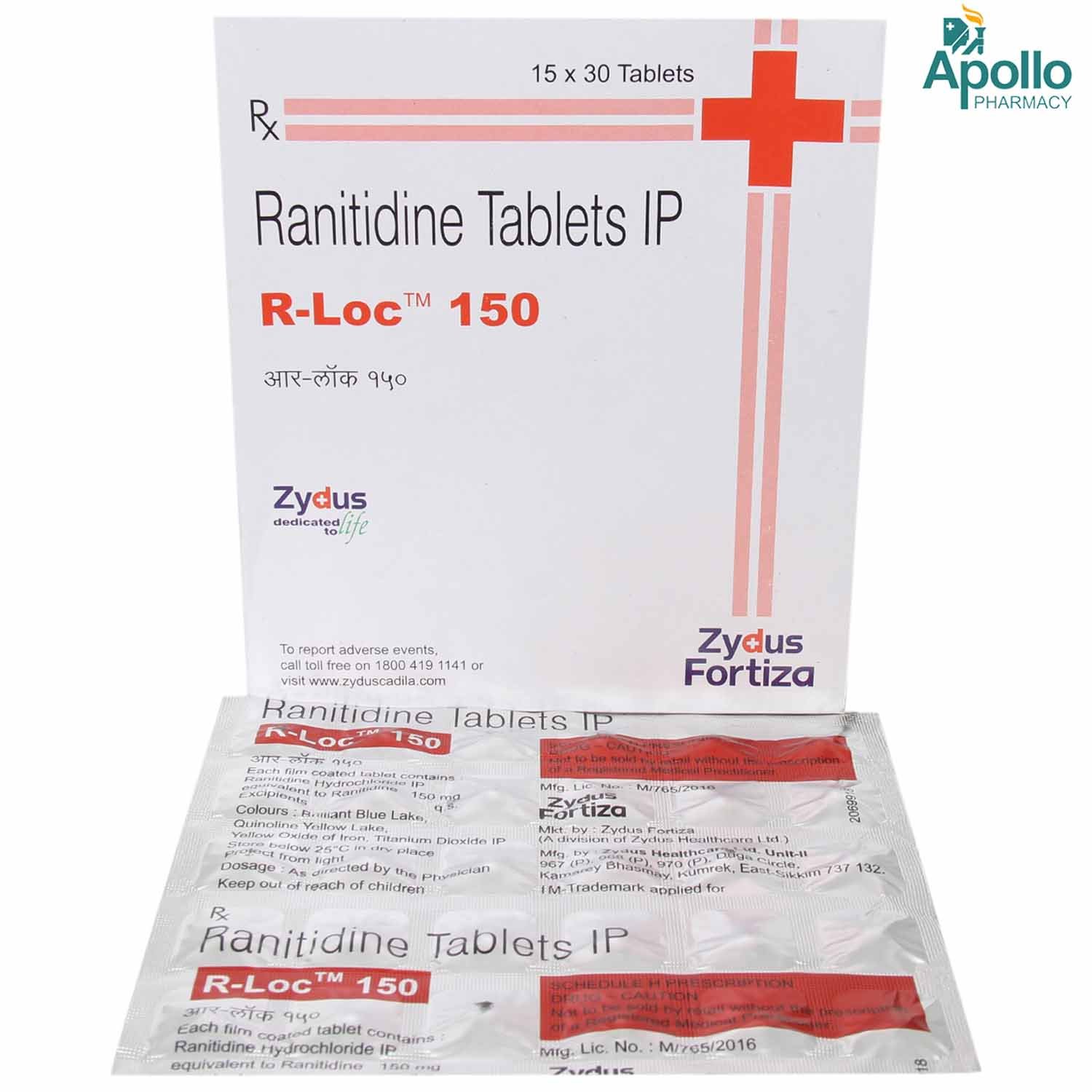
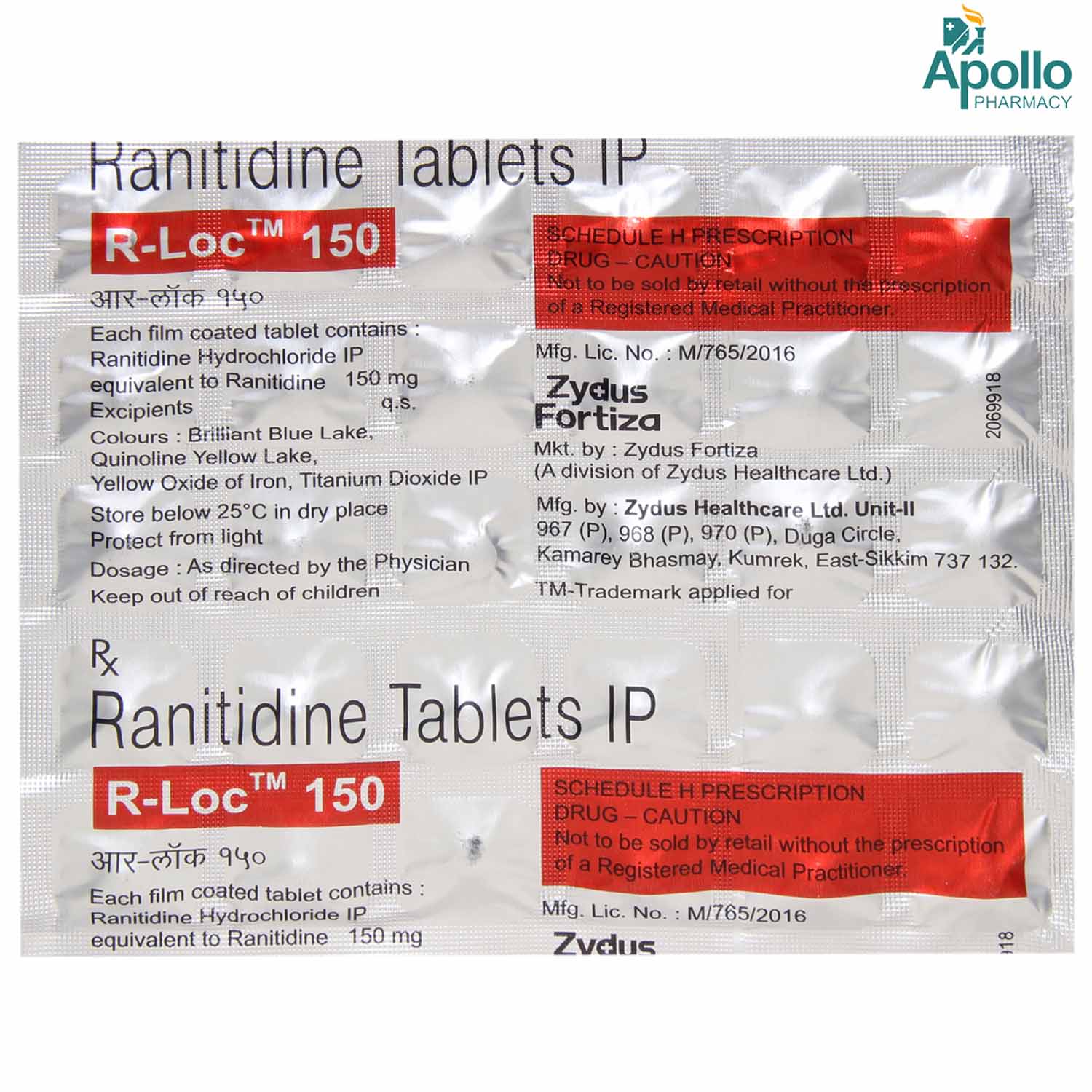
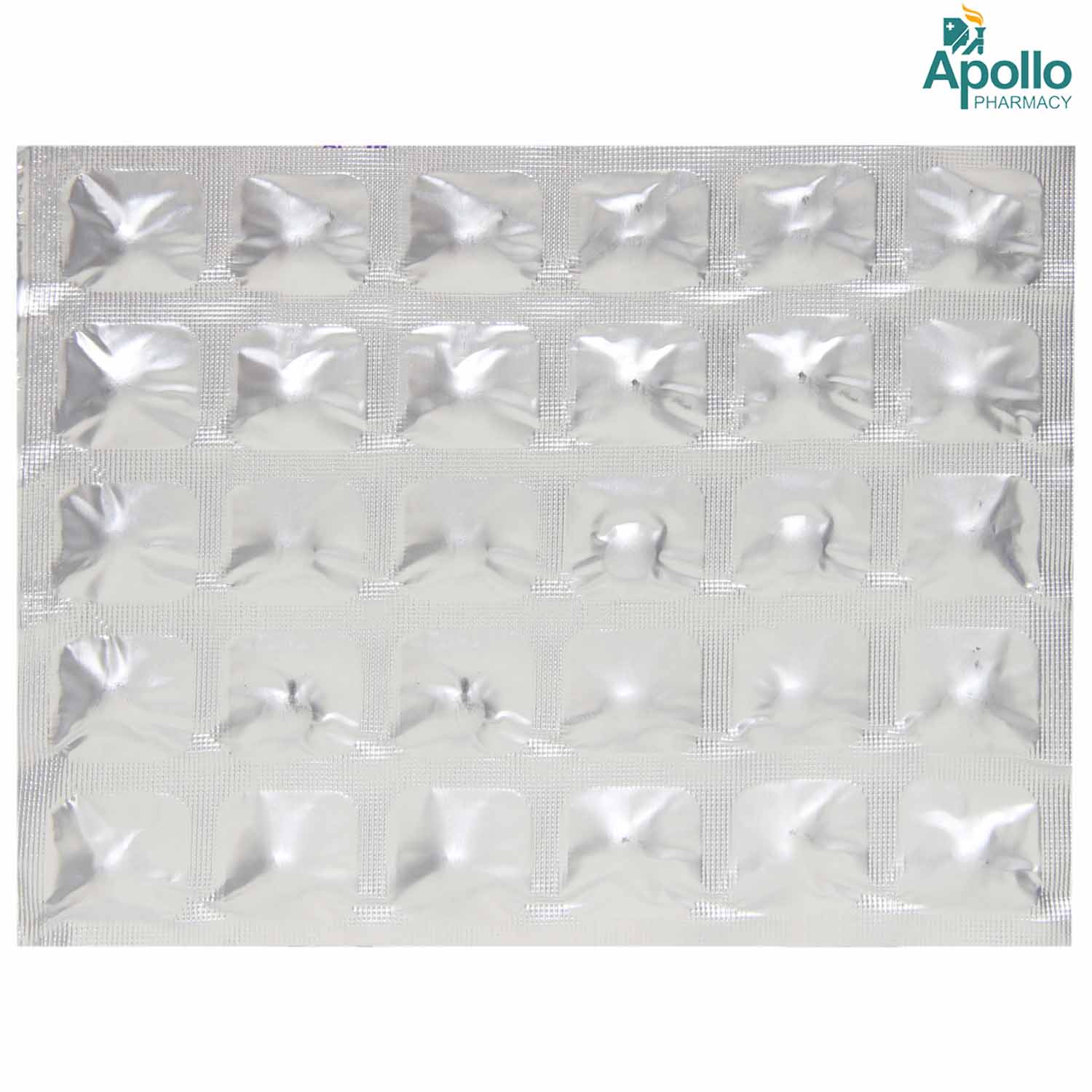
MRP ₹42
(Inclusive of all Taxes)
₹6.3 Cashback (15%)
Selected Pack Size:30
30 ₹37.8
(₹1.26 per unit)
In Stock
Provide Delivery Location
Online payment accepted
 Prescription drug
Prescription drugWhats That
Composition :
Manufacturer/Marketer :
Consume Type :
Expires on or after :
Return Policy :
About R-Loc 150 Tablet
R-Loc 150 Tablet belongs to the class of gastrointestinal agents. It is used to treat indigestion, heartburn and acid reflux. R-Loc 150 Tablet is also used for gastro-oesophageal reflux disease (GORD) when you get acid reflux. R-Loc 150 Tablet is also used to prevent and treat stomach ulcers. Often R-Loc 150 Tablet is taken for a rare condition caused by a pancreatic or intestine tumour called Zollinger-Ellison Syndrome.
R-Loc 150 Tablet contains ranitidine, a histamine-2 (H2) receptor blocker that helps reduce stomach acid by blocking the actions of the H2 receptor. The H2 receptor lies in the parietal cells of the stomach wall and is responsible for the release of gastric acid secretion - extra gastric acid secretion damage the tissues in the food pipe, stomach, and duodenum.
Take this medication exactly as prescribed by your doctor. It would help if you kept taking medicine for long as your doctor recommends. If you stop early, your symptoms may come back, and your condition may worsen. R-Loc 150 Tablet might have common side effects like headache, diarrhoea, constipation, and shortness of breath. These side effects are temporary and may get resolved after some time. However, if these side effects persist, contact your doctor.
It is recommended not to take R-Loc 150 Tablet if you are allergic to any components present in R-Loc 150 Tablet . If you are pregnant, planning to become pregnant, or are breastfeeding, you should not take this medication unless your doctor says it is necessary. Inform your doctor if you have stomach or intestinal cancer, liver problem, or will have an endoscopy in the future. And also, let your doctor know about your health condition and all the medicines you are taking before taking R-Loc 150 Tablet to rule out any side effects.
Uses of R-Loc 150 Tablet
Directions for Use
Key Benefits
R-Loc 150 Tablet helps in reducing the excess amount of stomach acid. In turn, it prevents the formation of an ulcer in the stomach (peptic ulcer), gastroesophageal reflux disease (GERD) with or without ulcer, and Zollinger Ellison Syndrome, in which the stomach makes an exceptionally high amount of acid.
Storage
- Inform Your Doctor: Notify your doctor immediately about your diarrhoea symptoms. This allows them to adjust your medication or provide guidance on managing side effects.
- Stay Hydrated: Drink plenty of fluids to replace lost water and electrolytes. Choose water, clear broth, and electrolyte-rich drinks. Avoid carbonated or caffeinated beverages to effectively rehydrate your body.
- Follow a Bland Diet: Eat easy-to-digest foods to help firm up your stool and settle your stomach. Try incorporating bananas, rice, applesauce, toast, plain crackers, and boiled vegetables into your diet.
- Avoid Trigger Foods: Steer clear of foods that can worsen diarrhoea, such as spicy, fatty, or greasy foods, high-fibre foods, and dairy products (especially if you're lactose intolerant).
- Practice Good Hygiene: Maintain good hygiene to prevent the spread of infection. To stay healthy, wash your hands frequently, clean and disinfect surfaces regularly, and avoid exchanging personal belongings with others.
- Take Anti-Diarrheal Medications: If your doctor advises, anti-diarrheal medications such as loperamide might help manage diarrhoea symptoms. Always follow your doctor's directions.
- Keep track of your diarrhoea symptoms. If they don't get better or worse or are accompanied by severe stomach pain, blood, or dehydration signs (like extreme thirst or dark urine), seek medical help.
Drug Warnings
You should avoid taking R-Loc 150 Tablet if you are allergic to R-Loc 150 Tablet or H2 receptor blockers, have gastric cancer, or have liver disease. If you are a pregnant woman or nursing mother, do not consume R-Loc 150 Tablet without first consulting your doctor. R-Loc 150 Tablet may interact with a blood thinner (warfarin), antifungal (ketoconazole), or anti-HIV drug( atazanavir). Let your doctor know if you are taking these medicines. Intake of R-Loc 150 Tablet may mask the symptom of gastric cancer, so if you have any severe stomach pain or gastric bleeding (blood in stool and mucous), immediately consult the doctor.
Drug-Drug Interactions
Drug-Drug Interactions
Login/Sign Up
Co-administration of R-Loc 150 Tablet with Mesalazine can decrease the levels of Mesalazine, which may be less effective in treating a condition.
How to manage the interaction:
There may be a possible interaction between Mesalazine with R-Loc 150 Tablet, but they can be taken together if a doctor has prescribed them. Do not discontinue any medications without consulting a doctor.
Taking atazanavir with R-Loc 150 Tablet can reduce the effectiveness of atazanavir.
How to manage the interaction:
Although taking R-Loc 150 Tablet together with Atazanavir can possibly result in an interaction, they can be taken together if prescribed by your doctor. However, contact your doctor if you experience unusual symptoms. Do not discontinue any medicine without consulting a doctor.
Coadministration of loperamide with R-Loc 150 Tablet may significantly increase the blood levels of loperamide. This can increase the risk of serious side effect like irregular heart rhythm.
How to manage the interaction:
Although taking loperamide with R-Loc 150 Tablet together can result in an interaction, they can be taken if a doctor has prescribed it. However, if you experience sudden dizziness, lightheadedness, fainting, breathing difficulty, or rapid heartbeat, consult the doctor immediately. Do not stop using any medications without talking to a doctor.
Taking R-Loc 150 Tablet and Dasatinib together reduces the effectiveness of Dasatinib.
How to manage the interaction:
Although taking R-Loc 150 Tablet together with Dasatinib can result in an interaction, they can be taken together if prescribed by a doctor. However, contact a doctor if you experience any unusual symptoms. Do not discontinue any medicine without consulting a doctor.
Using Pazopanib with R-Loc 150 Tablet can reduce the effectiveness of pazopanib
How to manage the interaction:
Although taking R-Loc 150 Tablet together with Pazopanib can possibly result in an interaction, but can be taken together if prescribed by a doctor. However, if you experience any unusual symptoms contact your doctor immediately. Do not stop using any medications without first talking to your doctor.
Coadministration of Gefitinib with R-Loc 150 Tablet can reduce the acidity levels in the stomach and also decrease the effectiveness of gefitinib
How to manage the interaction:
Taking Gefitinib with R-Loc 150 Tablet together can possibly result in an interaction, it can be taken if your doctor has advised it. It is recommended that gefitinib is either taken 6 hours before or 6 hours after R-Loc 150 Tablet to help minimize the impact of the interaction. Do not stop using any medications without first talking to your doctor.
Coadministration of Rilpivirine with R-Loc 150 Tablet can reduce the acidity levels in the stomach and also decrease the effectiveness of Rilpivirine.
How to manage the interaction:
Although taking R-Loc 150 Tablet together with Rilpivirine can possibly result in an interaction, they can be taken together if prescribed by your doctor. To reduce the chance of interaction, take R-Loc 150 Tablet at least 12 hours before or 4 hours after taking rilpivirine. Do not discontinue any medicine without consulting a doctor.
Taking these medications together might make it harder for your body to absorb atazanavir, which could make it less effective.
How to manage the interaction:
v
Taking these medications together might make it harder for your body to absorb atazanavir, which could make it less effective.
How to manage the interaction:
vv
Drug-Food Interactions
Drug-Food Interactions
Login/Sign Up
Diet & Lifestyle Advise
Avoid acid or heartburn-triggering foods or drinks like onions, peppermint, chocolate, caffeinated beverages, citrus fruits or juices, tomatoes and high-fat and spicy foods.
Before going to sleep, raise your bedhead, so your head and chest are higher than your feet. Do not use piles of pillows; one raised block is fine. This will not allow the stomach acid to backflow through your food pipe.
Avoid taking alcohol and smoking cigarettes. Alcohol can raise the production of stomach acid leading to heartburn and acid reflux. On the other hand, nicotine smoking damages the valve (sphincter), preventing stomach acid backflow into the food pipe.
Include high fibre-containing foods, berries, cherries, leafy green veggies (kale, spinach) and black peppers in your meal.
Fermented dairy products like miso, sauerkraut, and kimchi contain probiotics which help prevent excess stomach acid production. Cranberry juice can be beneficial for peptic ulcers and H Pyroli infections.
Avoid regular sitting continuously, as it can increase stomach acid production. Take a break of 5 minutes in 1 hour by brisk walking or stretching.
Side Effects of R-Loc 150 Tablet
Headache
Constipation
Diarrhoea
Stomach pain
Habit Forming
Therapeutic Class
All Substitutes & Brand Comparisons
RX
Out of StockCypatec 150mg Tablet
₹5.1
(₹0.46 per unit)
63% CHEAPERRX
Out of StockAcibloc 150mg Tablet
Marc Laboratories Pvt Ltd
₹7.16
(₹0.64 per unit)
49% CHEAPERRX
Out of StockAsitac 150mg Tablet
₹7.2
(₹0.65 per unit)
48% CHEAPER
Product Substitutes
Author Details
We provide you with authentic, trustworthy and relevant information
Drug-Diseases Interactions
Drug-Diseases Interactions
Login/Sign Up
FAQs
Drug-Drug Interactions Checker List
- WARFARIN
- KETOCONAZOLE
- ATAZANAVIR
- ALUMINUM HYDROXIDE
Disease/Condition Glossary
The stomach is usually protected from acid by a mucous layer. In some cases, excess acid production erodes the mucous layer, which leads to complications like acidity. Due to this, acid frequently flows back into the food pipe (oesophagus). This backflow (acid reflux) irritates the food pipe and causes heartburn. Symptoms include heartburn, sour or bitter taste in the mouth, and difficulty swallowing. Indigestion is the feeling of fullness. It occurs due to slow gastric emptying. Symptoms include stomach pain, bloating, heartburn, nausea and vomiting.
Gastroesophageal reflux disease (GERD): The stomach is usually protected from acid by a mucous layer. In some cases, the mucous layer gets irritated or eroded due to excess acid production, which leads to complications like GERD, hyperacidity, peptic ulcers, and heartburn. Gastroesophageal reflux disease (GERD) occurs when stomach acid frequently flows back into the food pipe (oesophagus). This backflow (acid reflux) irritates the food pipe and causes heartburn. Symptoms include heartburn, sour or bitter taste in the mouth, and difficulty swallowing.
Peptic ulcers are sores that develop on the stomach and intestine lining due to erosion of the stomach's protective lining. Symptoms include nausea, appetite changes, bloody or dark stools, unexplained weight loss, vomiting, and indigestion.
Zollinger-Ellison syndrome: It is characterized by the formation of tumours in the upper part of the small intestine, which leads to excess acid production. Symptoms include bloating, burping, weight loss, loss of appetite, nausea, and vomiting.

Have a query?
Buy best Gastro Enterology products by
Abbott India Ltd
Sun Pharmaceutical Industries Ltd
Alkem Laboratories Ltd
Cipla Ltd
Torrent Pharmaceuticals Ltd
Intas Pharmaceuticals Ltd
Mankind Pharma Pvt Ltd
Lupin Ltd
Dr Reddy's Laboratories Ltd
Aristo Pharmaceuticals Pvt Ltd
Alembic Pharmaceuticals Ltd
Wallace Pharmaceuticals Pvt Ltd
La Renon Healthcare Pvt Ltd
Leeford Healthcare Ltd
Macleods Pharmaceuticals Ltd
J B Chemicals & Pharmaceuticals Ltd
Zydus Healthcare Ltd
Micro Labs Ltd
Zydus Cadila
Fourrts India Laboratories Pvt Ltd
Morepen Laboratories Ltd
Zuventus Healthcare Ltd
FDC Ltd
Eris Life Sciences Ltd
Cadila Pharmaceuticals Ltd
Medishri Healthcare Pvt Ltd
Alniche Life Sciences Pvt Ltd
Medley Pharmaceuticals Ltd
Tas Med India Pvt Ltd
Signova Pharma
Tablets India Ltd
Elder Pharmaceuticals Ltd
Wockhardt Ltd
Emcure Pharmaceuticals Ltd
Sanatra Healthcare Ltd
Glenmark Pharmaceuticals Ltd
Blue Cross Laboratories Pvt Ltd
East West Pharma India Pvt Ltd
Hetero Drugs Ltd
Indoco Remedies Ltd
Vasu Organics Pvt Ltd
Biological E Ltd
Primus Remedies Pvt Ltd
Akumentis Healthcare Ltd
Corona Remedies Pvt Ltd
Pfizer Ltd
Albert David Ltd
DR Johns Lab Pharma Pvt Ltd
Ajanta Pharma Ltd
Cadila Healthcare Ltd
Ipca Laboratories Ltd
Ordain Health Care Global Pvt Ltd
Systopic Laboratories Pvt Ltd
Ozone Pharmaceuticals Ltd
Foregen Healthcare Ltd
Medgen Drugs And Laboratories Pvt Ltd
Panacea Biotec Ltd
Samarth Life Sciences Pvt Ltd
Shine Pharmaceuticals Ltd
Adonis Laboratories Pvt Ltd
Dey's Medical Stores (Mfg) Ltd
Eskag Pharma Pvt Ltd
Hetero Healthcare Pvt Ltd
Indchemie Health Specialities Pvt Ltd
Meyer Organics Pvt Ltd
RPG Life Sciences Ltd
Troikaa Pharmaceuticals Ltd
Biochem Pharmaceutical Industries Ltd
Shreya Life Sciences Pvt Ltd
Sinsan Pharmaceuticals Pvt Ltd
3M India Ltd
Chemo Healthcare Pvt Ltd
Levin Life Sciences Pvt Ltd
Meridian Enterprises Pvt Ltd
Overseas Health Care Pvt Ltd
Saf Fermion Ltd
Sanzyme Pvt Ltd
Steris Healthcare
USV Pvt Ltd
Seagull Pharmaceutical Pvt Ltd
Votary Laboratories (India) Ltd
Win Medicare Ltd
Yuventis Pharmaceuticals
Aar Ess Remedies Pvt Ltd
Caplet India Pvt Ltd
Piramal Enterprises Ltd
Sanofi India Ltd
Cnx Health Care Pvt Ltd
Galpha Laboratories Ltd
Intra Labs India Pvt Ltd
Kinesis Pharmaceuticals Pvt Ltd
Msn Laboratories Pvt Ltd
Olcare Laboratories Pvt Ltd
Rapross Pharmaceuticals Pvt Ltd
Ronyd Healthcare Pvt Ltd
Saffron Therapeutics Pvt Ltd
Solariz Healthcare Pvt Ltd
Syndicate Life Sciences Pvt Ltd
Aurz Pharmaceutical Pvt Ltd
Biophar Lifesciences Pvt Ltd
Alcohol
Safe if prescribed
Drinking alcohol with R-Loc 150 Tablet may cause dehydration and elevate the level of stomach acid, thereby decreasing its efficacy. So try to avoid consuming alcohol.
Pregnancy
Consult your doctor
R-Loc 150 Tablet should be used in pregnant women only if clinically needed, and the benefits outweigh the risks.
Breast Feeding
Consult your doctor
R-Loc 150 Tablet should be used in nursing women only if clinically needed, and the benefits outweigh the risks.
Driving
Safe if prescribed
R-Loc 150 Tablet has no or negligible influence on the ability to drive and use machines. In some cases, R-Loc 150 Tablet may cause dizziness and sleep. If you observe these symptoms, do not drive or operate machinery until you feel better.
Liver
Consult your doctor
If you have or had a history or evidence of any liver-related diseases, please consult the doctor before taking medicine.
Kidney
Consult your doctor
If you have or had a history or evidence of any kidney-related diseases, please consult the doctor before taking medicine.
Children
Safe if prescribed
The dose needs to be adjusted based on your child’s weight.




